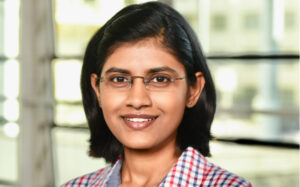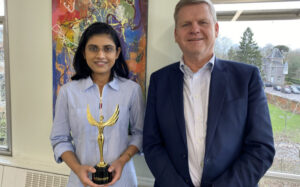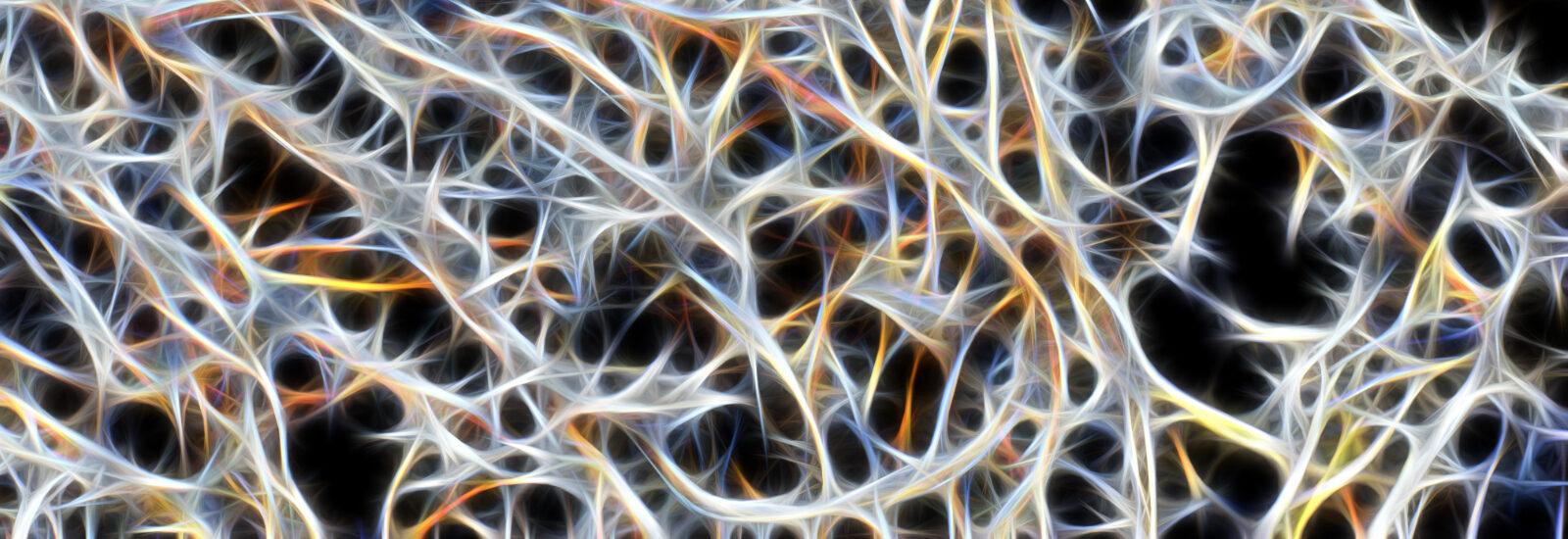CONNECTED speaks to Reading graduate Maitreyee Wairagkar – runner-up in the Scientific Achievement category in the Nature ‘Inspiring Women in Science’ Awards 2022 and winner of the 2023 India UK Achievers Honours in the category of Science and Innovation.

The Nature Awards celebrate those who have made an exceptional contribution to scientific discovery, and who are also inspiring the next generation of scientists, in particular supporting the retention of women* in science careers. While the India UK Achievers Honours recognise and celebrate the work of 75 young Indian students and alumni who have pursued a British programme of study, and have gone on to achieve excellence in their field, inspiring and encouraging many others to dream and achieve.
After discovering she was runner-up and winner of these prestigious awards, Maitreyee shared:
“I hope to use this opportunity to be a role model as an Indian woman scientist and to help inspire more girls to pursue Science, Technology, Engineering and Mathematics [STEM] subjects.
“This recognition is especially important to me because neurotechnology is a highly male-dominated field and this platform will help me reach women and girls around the world who are interested in careers in technology and sciences.”
With the Women in Science UNESCO Institute for Statistics highlighting that women make up less than 30% of the world’s researchers, there are still great strides that need to be made to encourage more females into this field.
Maitreyee hopes that these awards not only brings a spotlight to the global benefits of her research, but also influences young girls from all around the world to consider careers in STEM fields.
Ground-breaking research
Maitreyee’s research focuses on the Brain-Computer Interfaces (BCI) she built that enable people with severe motor and speech impairments to communicate directly via their brain signals.
She explained: “Workings of the human brain have always fascinated me since childhood. We still do not fully understand how this gigantic mesh of interconnected neurons in our brain gives rise to such complex cognitive behaviours and fine control of our body.
“Severe neurological conditions can render people in a locked-in state where their cognition and awareness is intact, but their body is fully paralysed – they cannot move or speak.
“Being aware and able to think but not being able to communicate is absolutely devastating and a potential way to help them is by deciphering their brain signals that are intact to understand their intentions.
“This technology is called BCI, which allows a person to control computers and other devices directly through their brain signals.”
Maitreyee started her BCI research journey at the University of Reading where she was awarded the University of Reading International Research Studentship which enabled her to pursue a PhD in her now award-winning research.
She said: “Through my research I aim to restore lost movement and speech abilities that can improve the quality of life and functional independence in people with severe neurological conditions. Our ultimate goal is that no-one will ever lose their ability to communicate due to neurological injury, improving the lives of millions of people around the world.”
Real-world applications
Committed to translating her research to real-world applications, Maitreyee’s research has not only had a global impact but has the ability to change the lives of those living with debilitating illnesses and diseases on a day-to-day basis.
Maitreyee shared:
“I have developed different types of assistive and rehabilitation neurotechnologies to help people with neurological conditions such as stroke, paralysis, dementia, brain injury, Parkinson’s disease, and Amyotrophic Lateral Sclerosis [ALS], many of which do not have a cure yet.”
Whilst at the University of Reading, Maitreyee impressively developed an interactive motor and language rehabilitation therapy system for stroke and traumatic brain injuries for home use in collaboration with the Royal Berkshire Hospital. This has since been commercialised by the health tech company, Evolv, and has been made available to patients in multiple countries.
“These neurotechnologies will enable us to provide better and efficient care to people with neurological conditions focused on improving their quality of life. My aim is to develop low-cost devices that can be affordable to people all around the world and bring these cutting-edge technologies out of the lab to their target users,” she explained.
A transformational experience
Maitreyee shared that both her undergraduate and postgraduate experience at Reading “has been transformational, both professionally and personally. I came to study Artificial Intelligence [AI] and Cybernetics at the University of Reading after finishing my high school education in India, as Reading was the only university in the world offering such a cutting-edge multidisciplinary degree, and stayed on to complete my PhD.
“Reading offered me an ideal and stimulating environment to study and grow as a researcher which has been instrumental in shaping my career path.”
 Maitreyee now continues her scientific career path as a postdoctoral fellow at the University of California, Davis where she continues to “break barriers between humans and technologies” and encourages others to follow her into the science field.
Maitreyee now continues her scientific career path as a postdoctoral fellow at the University of California, Davis where she continues to “break barriers between humans and technologies” and encourages others to follow her into the science field.
She said: “Being a scientist is very rewarding. It is exhilarating to discover something new that no-one else in the world has discovered before, perform exciting experiments and build new technologies. You will face probably more failures than successes in science, but nevertheless, undertaking the challenge and persisting to get to the solution is very satisfying.
“My advice to anyone interested in working in science, is to not become discouraged by the setbacks, be confident in your abilities, and keep growing. Be at the forefront of showcasing your amazing work, strive to be visible and always help others to achieve success.”
Discover more about PhDs in Biomedical Engineering.
*The Nature Awards uses an inclusive definition of ‘woman’ and ‘women’, including those that self-identify as women, trans women, genderqueer and non-binary people.






